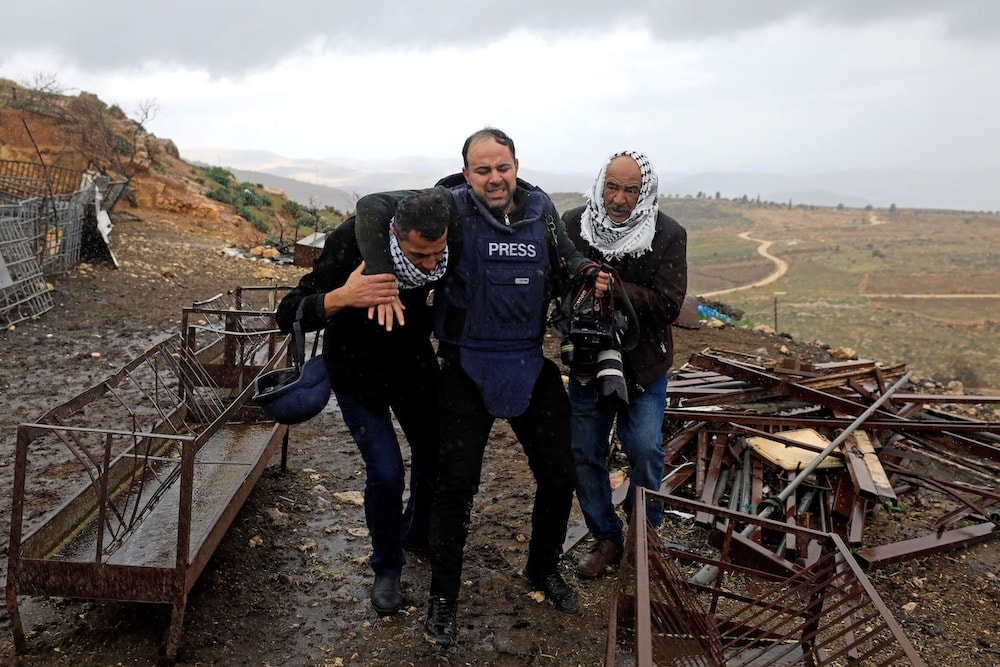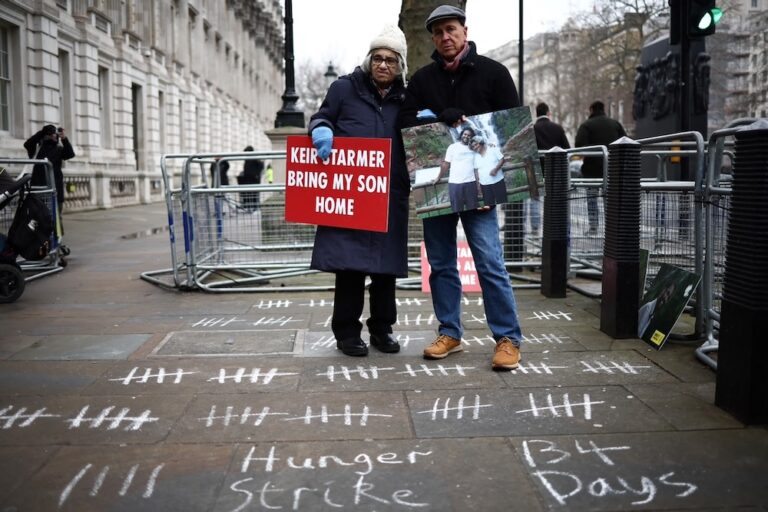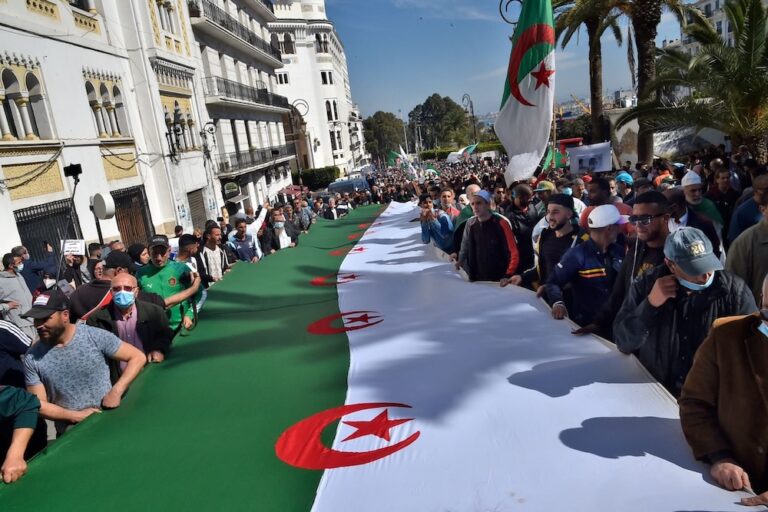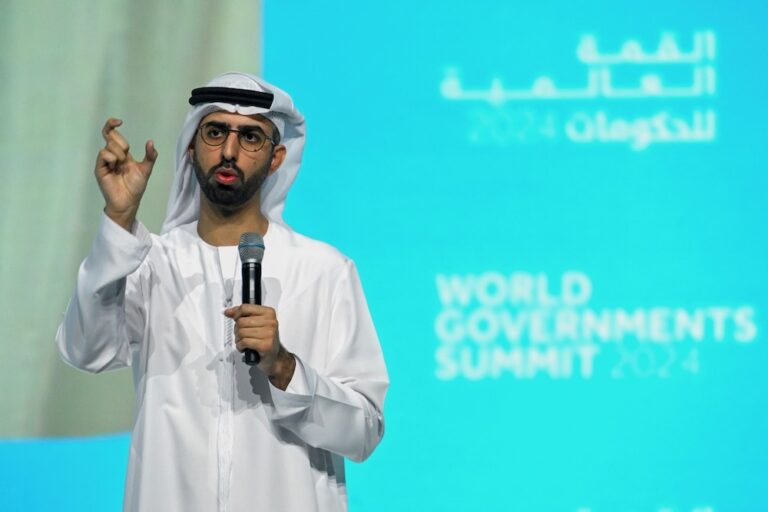January 2023 in Middle East and North Africa: A free expression roundup produced by IFEX's Regional Editor Naseem Tarawnah, based on IFEX member reports and news from the region.
Palestinian journalists targeted amidst escalating violence. Egypt’s heightened digital oppression. Death penalties in Iran. Bomb attack on TV station underscores Lebanon’s cycle of impunity. And ‘Huna London’ no more as BBC Arabic radio signs off for the last time.
Escalating violence against Palestinian media
With over 35 people killed by Israeli forces and settlers in recent weeks, January was the deadliest month Palestinians in the West Bank and East Jerusalem have faced in years. The West Bank cities of Jenin and Nablus have been the heavy targets of nightly Israeli army raids targeting Palestinian fighters.
Journalists struggled to cover the confrontations in a month that saw violations against Palestinian media rise by 203% compared to December, according to IFEX member MADA Center. Palestinian journalists documenting Israeli settler attacks were targeted with gas bombs and rubber bullets in Nablus by Israeli forces, with live bullets targeting journalists covering confrontations in the Jenin refugee camp.
MADA Center’s annual report highlights a worrying trend of escalating violence against Palestinian media. Last year, 605 violations were documented, the most serious of which were the killings of two women journalists, Shireen Abu Akleh and Ghufran Warasneh. If January’s attacks are any indicator, 2023 could see a further rise in efforts to suppress freedom of expression and restrict access to information.
Meanwhile, violations committed by Palestinian authorities also saw an increase last month, with intelligence services summoning journalists for interrogation, confiscating camera equipment to prevent coverage of peaceful marches, and instigating the “arbitrary” dismissal of cartoonist Mohammad Sabaaneh from Al-Hayat Al-Jadida newspaper.
Sabaaneh, who was previously jailed by Israel for his work, was fired after publishing a cartoon criticizing Palestinian President Mahmoud Abbas. The Forum of Palestinian Journalists called Sabaaneh’s dismissal a “stab in the side of Palestinian media”, saying it reflected the Palestinian Authority’s “strange insistence” on stifling freedom of expression.
Egypt’s year of whitewashing and heightened digital oppression
In 2022, Egyptian authorities failed to ease repression against critics and repeal restrictive laws, according to the latest World Report from Human Rights Watch’s (HRW). Despite a whitewashing effort to improve its image ahead of hosting the COP27 UN climate conference last November, the government failed to enact critical reforms, the report states.
Highlighting the concerted efforts by Egyptian and global activists during COP27 that helped turn the event from a PR opportunity to “a rare moment of reckoning” for the Egyptian government, the report points to the thousands of prisoners of conscience that remain unjustly detained, and persisting attacks on civil society and vulnerable groups.
“Egyptian authorities should understand that no PR campaign will be enough to overshadow the country’s human rights crisis, only an end to repression and genuine reforms will suffice.”
Adam Coogle, deputy MENA director at HRW
Egyptian human rights organizations confirmed the wider trend of the country’s worsened human rights crisis over the past three years in the face of government whitewashing efforts, including the adoption of a national human rights strategy and the announcement of a national dialogue.
In a new report submitted to the UN’s Universal Periodic Review mechanism, the rights groups state that despite receiving 375 recommendations to improve the situation in its UPR in 2019, the government escalated their systematic perpetration of human rights violations, including undermining judicial independence, unaddressed violations of women’s rights, and retaliation against civil society activists through prison sentences, torture, travel bans, and asset freezes.
January alone saw 39 people sentenced, including 22 minors, to lengthy prison sentences between five and 15 years over anti-government protests that took place across the country in September 2019. Exiled businessman turned whistle-blower Mohamed Ali received a life sentence in the same trial for leading calls for protests against President Abdel Fattah El-Sisi’s government. The charges brought against the defendants in the mass trial included the publishing of YouTube videos calling for protests, and sharing of them on social networks.
The recent arrest of at least three TikTokers adds to the growing number of Egyptians targeted for their online content. Basma Hegazi, Mohamed Hosam, and Ahmad Ali El-Khouly were charged with fake news and terrorism for creating a viral parody video of a prison visit, once again highlighting the government’s misuse of counter-terrorism and cybercrime laws to restrict free expression and target activists.
As one activist and attorney told IFEX member Social Media Exchange (SMEX):
“The Egyptian authorities use the Anti-terrorism Law as a pretext to prosecute their opponents, especially social media users and bloggers, by the hundreds. It is a form of digital oppression, whereby the authorities encroach upon people’s digital privacy, search their phones, prosecute activists and exploit legislations to block websites or applications and shut down the internet.”
Egypt’s digital oppression has also extended to the targeting of the country’s LGBTQI+ community. A recent BBC investigation revealed how police officers are posing online to hunt down LGBTQI+ people on dating and social apps, in some cases allegedly fabricating evidence against them.
Media face bomb attacks amid Lebanon’s cycle of impunity
A grenade attack on LBCI studios in Lebanon last month has sparked concerns about a resurgence of violence against media outlets in the country.
On 22 January, two unidentified attackers threw a grenade in the parking lot of LBCI studios, resulting in material damages only. The attack came after the station broadcast a satirical sketch entitled “Learn to speak Shiite”, which prompted a barrage of criticism and threats online, mainly from individuals and groups linked to Hezbollah, towards the TV station and the comedians involved.
According to Reporters Without Borders (RSF), this marked the third armed attack against a TV channel in connection with a satirical sketch in recent weeks amid growing hostility towards freedom of expression in Lebanon. The Committee to Protect Journalists (CPJ) also called for a ‘thorough investigation’ in order to hold the perpetrators accountable and ensure such attacks are not repeated.
Yet justice for successive crimes against the media and the wider civic space remains elusive in Lebanon, underscoring Lebanese authorities’ inability to curb the country’s culture of impunity.
Two years have passed since the murder of journalist Lokman Slim with no signs of justice in sight after an official police investigation failed to identify those responsible for his assassination. RSF has called for an independent investigation and referred Slim’s case and those of 27 other threatened journalists to the UN last year.
During a memorial marking the second anniversary of his death, Slim’s family called for the UN to investigate the motive for his killing and discover whether it was connected to the 2020 Beirut blast.
In one of his final public appearances, the prominent journalist accused the Syrian regime of having ties to the ammonium nitrate shipment that detonated at the port on 4 August 2020 and killed over 200 people. The stalled domestic investigation into the catastrophic event has become emblematic of the country’s impunity and the various political authorities that sustain it.
Tarek Bitar, the Lebanese judge investigating the blast, announced a sudden resumption of the case last month and charged top officials with homicide. The decision came after a 13-month suspension due to Bitar encountering resistance from the country’s ruling establishment seeking to derail the probe. Following the decision, Lebanon’s top public prosecutor Ghassan Oweidat, who was among the officials charged, subsequently charged the judge with mishandling the investigation, and ordered the release of those detained in connection with the explosion.
The ongoing saga of the Lebanese justice system highlights the persistent struggle by civil society for accountability in a country plagued by a culture of impunity. Rights groups have called on the UN Human Rights Council to help secure a path toward truth and justice for the blast’s victims and pass an urgent resolution creating an impartial fact-finding mission.
Meanwhile, Lebanese journalist Marie Jo Sader was honoured with the Lokman Slim Prize for her investigation into his killing.
Iran’s death penalties for dissent
As anti-government demonstrations persist in Iran amid a lethal clampdown, protesters, human rights defenders, writers and poets, and journalists reporting on the movement continue to face imprisonment on dubious charges and death sentences following unfair trials.
As of January, at least 88 journalists have been arrested since the onset, in September 2022, of protests sparked by the killing of 22-year old Mahsa Amini, according to a CPJ tally. Nearly all have been charged with “spreading propaganda against the ruling system” and “colluding and acting against national security,” with at least five journalists receiving sentences in excess of five years, the legal maximum.
“By issuing heavy sentences against journalists, in some cases in excess of what the law allows, authorities are showing the lengths they are willing to go to silence the press.”
Sherif Mansour, CPJ MENA program coordinator
RSF condemned a two-year suspended prison sentence that was imposed without any trial on Iranian journalist Nazila Maroofian for interviewing the father of Mahsa Amini in October.
Other women journalists that investigated Amini’s death are awaiting trial. The cases of Niloofar Hamedi and Elahe Mohammadi, the first reporters to bring attention to Amini’s case, are particularly alarming. Both have been held for nearly five months and are facing trial on charges of “propaganda against the system and conspiracy to act against national security” that could carry the death penalty. Authorities also arrested political journalist Mehdi Beik who interviewed the families of protesters sentenced to death.
January saw several executions carried out, including of protesters Mohammad Mehdi Karrami and Seyed Mohammad Hosseini, who were executed following a sham trial that relied on ‘confessions’ allegedly obtained under torture. Karrami reportedly had less than 15 minutes to defend himself in court.
Writing from inside Iran’s notorious Evin’s women’s prison, imprisoned women’s rights activist Sepideh Qolian offered a brutal accounting of the torture and ill-treatment detainees are subjected to in order to compel confessions. Qolian, who is serving a five-year sentence since 2018 based on a forced confession, described first being forced to detail her alleged sexual relations on camera and being locked in the toilet of an interrogation room where a man was being tortured. Thirty prominent women political prisoners issued a call last month for an end to the execution of protesters in the country.
Against this brutal backdrop, in relatively good news for online activists, Meta’s oversight board has overturned a decision to remove a post containing the phrase “Death to Khamenei” from Facebook, concluding it was not a threat to the Iranian supreme leader’s life. “In the context of the post, and the broader social, political and linguistic situation in Iran, ‘marg bar Khamenei’ should be understood as ‘down with.’ It is a rhetorical, political slogan, not a credible threat,” the Oversight Board wrote.
In Brief
Saudi Arabia: IFEX and rights groups demanded the release of Internet activists Osama Khalid and Ziad Al-Sufyani, as well as others sentenced for online activism in the country. Prominent contributors on Wikipedia in Arabic, Khalid and Al-Sufyani were detained in 2020 and initially sentenced to 5 and 14 years’ imprisonment respectively, before Khalid’s sentence was later increased to 32 years on appeal.
Their case was brought to light only last month after rights groups SMEX and Democracy for the Arab World Now (DAWN) revealed that several Wikipedia administrators from the region were among those banned by Wikipedia in December 2022 for “conflict of interest editing” following an internal investigation. However, the rights groups were able to identify that the ban targeted 16 MENA users that had posted positive content about Saudi Arabia while censoring content critical of the country.
“It’s distressing that the Saudi government’s efforts to spread misinformation about its abuses has now breached as trusted and credible an international platform as Wikipedia,” said SMEX executive director, Mohamed Najem.
New & Noteworthy
IFEX member Maharat Foundation released a report on the coverage of sexual and reproductive rights in Lebanese media. The study found that social media is the main avenue for accessing information on these rights, while alternative media sites like Daraj, Raseef22, and Megaphone are the only platforms addressing violations faced by marginalized groups, including the LGBTQI+ community, refugees, immigrants, and female prisoners.
Marking the end of an era, BBC Arabic radio went off the air last month after 85 years. In the closing broadcast on 27 January, presenter Mahmoud Almossallami signed off with the station’s iconic slogan: ‘Huna London’ (This is London). Along with 10 other language services, including BBC Persian, it has been subject to cost-cutting measures at the BBC World Service and plans to shift towards digital content were announced last September.
Journalists lamented the loss to independent news for the region, as well as the impact of future plans on under-privileged communities in the region that rely on the accessibility of radio.



